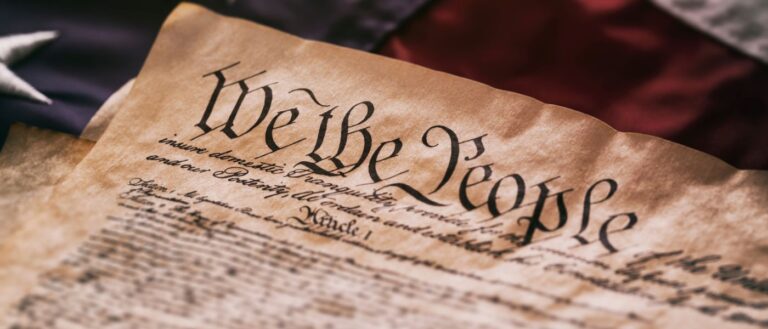
From its frequent references in political speeches to its appearances in popular culture, the United States Constitution is perhaps the best-known document in the country. But beyond possibly having memorized its preamble in middle school, how much do you actually know about the law of the land?
Did you know its seven brief articles make it one of the shortest constitutions in the world? Or that most of the world's nation-states have written constitutions-but none have endured as long as ours?
We learned all of that and more from Laura Tartakoff, senior instructor in the Department of Political Science at Case Western Reserve, who focuses on topics including constitutional law, civil liberties, social justice issues and more. In honor of Sept. 17 being Constitution Day, The Daily sat down with Tartakoff to glean her insights into the oldest written national federal constitution in effect today.
"The reason it works and has lasted so long is because specifics have been relegated to our ongoing political process and judicial system," she explained. "What's essential-a structural design to protect representative democracy and inalienable human rights-is already in our constitution. The U.S. Constitution in so limiting itself is indeed unique. Perhaps not much else should be in a constitution."
Read on to discover four other facts Tartakoff shared that you might not know about the U.S. Constitution.
1. Many countries have copied, more or less successfully, aspects of our constitution.
For example, Switzerland, Australia, and the Latin American republics [have done so, but] not every aspect of course. Our republic is federal, not unitary; our judicial system is anchored in common law not civil law; our government is presidential, not parliamentary, and is based on direct, not proportional representation.
2. Our constitution probably owes its longevity to principles such as federalism, separation of powers, judicial review, and to Article V, the amending clause.
The founders were neither idealists nor cynics. They were clearly realists, and therefore designed a system that, through governmental checks and balances, would protect us from the worst in human nature-our proclivity toward conflict, cruelty, dishonesty and greed. Recall references in The Federalist Papers to our "folly and wickedness" and to "the ordinary depravity of human nature."
3. Our constitution has been amended less than 30 times.
That it has only been amended 27 times is partly due to the difficulty of doing so and to judicial review, a process which enables change in constitutional theory and practice and has served as an alternate method to amending the document.
4. Our constitution grants no outright socioeconomic rights such as decent housing, public healthcare, or a well-paid job.
This contrasts sharply with constitutions in Europe and Latin America, which require governments to grant specific entitlements, labeling socio-economic goals or aspirations "positive liberties." Despite such guarantees, governments are not always able to provide such benefits.
Interested in learning more about the U.S. Constitution? Join the CWRU Society for Constitutional Policy for a Constitution Day event, "After Allen v. Milligan: The end of racial gerrymandering?" which will take place from 4 to 5:30 p.m. today (Sept. 18) in Mandel Center, Room 108. The featured speaker is Atiba Ellis, the Laura B. Chisolm Distinguished Research Scholar at Case Western Reserve.






